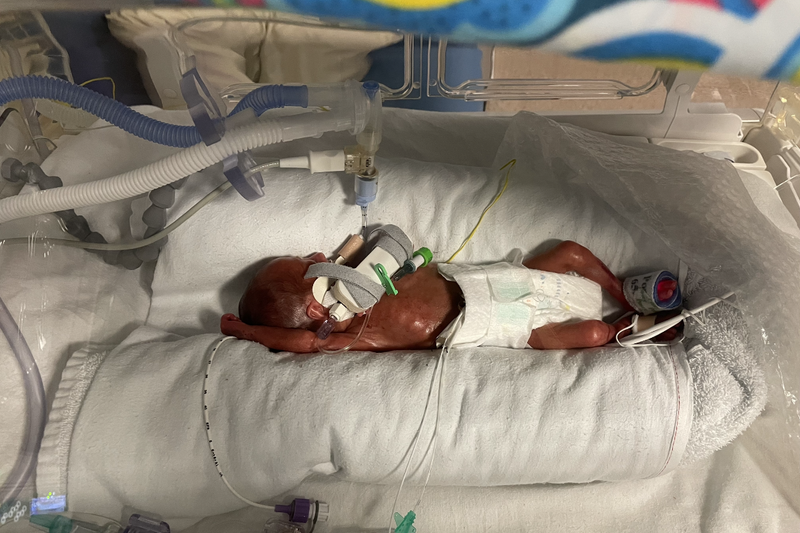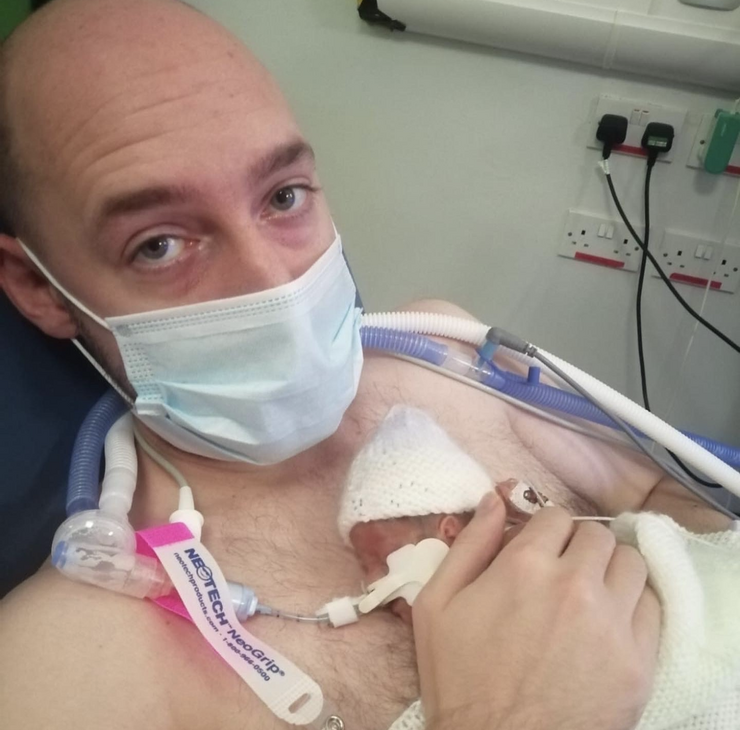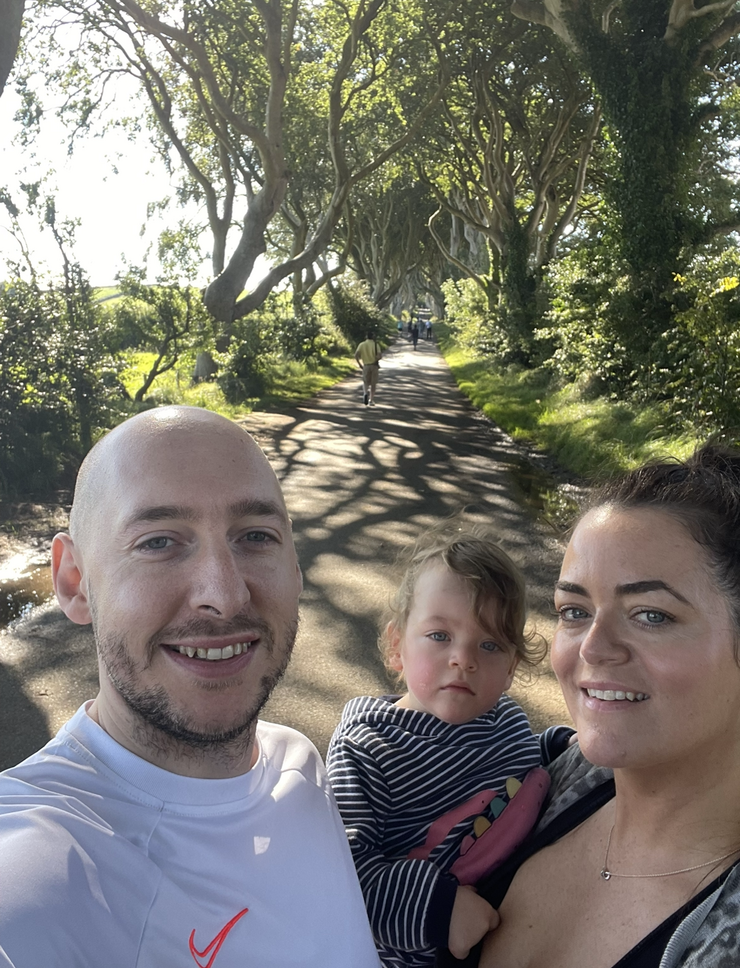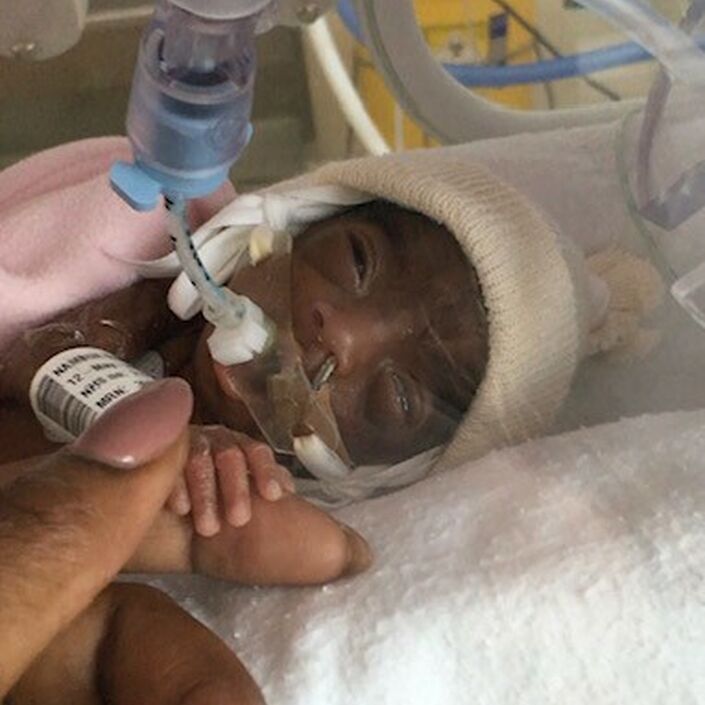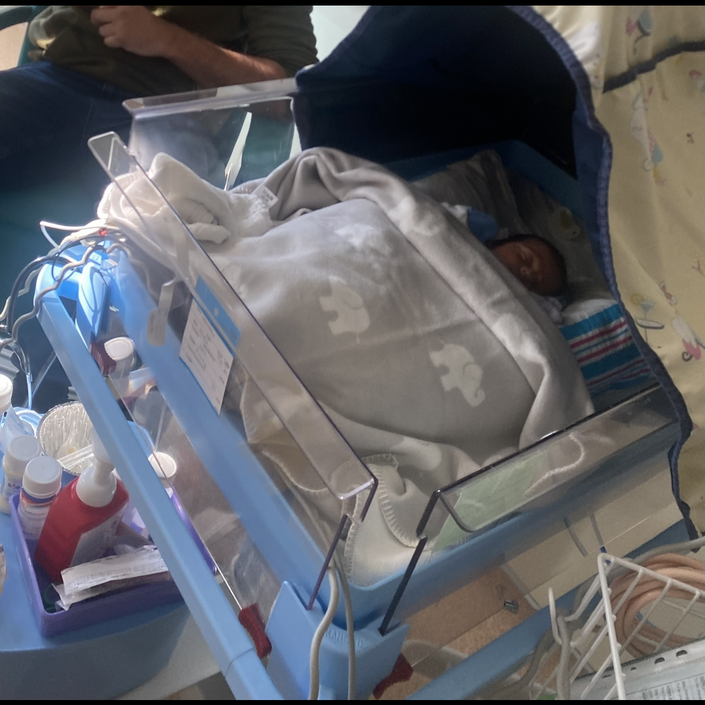On 1 October 2021, our daughter Ayla was born at 24 weeks and three days.
We arrived at Heartlands Hospital at 06:50 am. My girlfriend, Catherine, had been awake most of the night with what we thought was round ligament pain. She began to bleed at around 05:40 so we went straight to the hospital. We’d experienced a threatened miscarriage earlier in the pregnancy and were fearing the worst.
By around 09:30 am we were told Catherine was going into labour. We couldn’t believe it - it was and will always be the most bittersweet moment. The joy of being told your baby is on the way was overshadowed by the fear your baby probably won’t make it.
Catherine gave birth to Ayla at 12:25 p.m. We were rushed to the emergency room on the neonatal unit – eight staff were recorded as present but it felt like 80.
I thought my baby was going to die. I didn’t find any information about a baby being born 16 weeks early and surviving. I couldn’t get my head around why this was happening. Ayla was moved onto a table, and for three minutes and forty-five seconds, there wasn’t a heartbeat. There are no words to give justice to my feelings during that time. Then, a faint heartbeat was found. Heart rate was at 65% and blood saturation was at 58%. Thirty seconds passed.
Ayla hadn’t changed colour. The team had to insert an ET tube into her throat and suction the lungs (this is called Laryngoscope). At this point, the heartbeat disappeared. After two minutes and ten seconds, a heartbeat was found and Ayla was alive.
They’d allowed Ayla to be placed on Catherine’s chest for a moment as we looked down at this beautiful little creation. From there the team moved Ayla to an incubator in a unit on the ward and we were left with the midwife who did a great job with us.
The day after, we were given a tour of the neonatal unit and were advised of the rules of the unit. A weekly COVID test was required and we weren’t allowed on the unit if we had symptoms and hadn’t done any tests. It was so noisy and there were so many people going in and out of this ward. I felt overwhelmed. The beeps of the machines, I still hear them. I was fixated on numbers dropping and rising.
For Ayla to go home, she had to come off a CPAP machine and all oxygen support, then move to another unit at Heartlands, and then to Good Hope Hospital for the final stage of care, which was proving she could be breastfed and breathe independent of any machine.
Ayla weighed 700g when she was born. Her skin was bright red except for bruises which she had all over her body and it was difficult to see. When I first saw her in the incubator she had all sorts of wires coming in and out of her body.
She was wrapped in a towel shaped like a U and the lower half of her body was covered by bubble wrap. We weren’t allowed to hold her but we were able to open the side doors of the incubator to touch her. I remember her skin felt like some sort of warm watery rubber. Her hand was smaller than my index fingernail. She was just a tiny bit longer than my hand.
